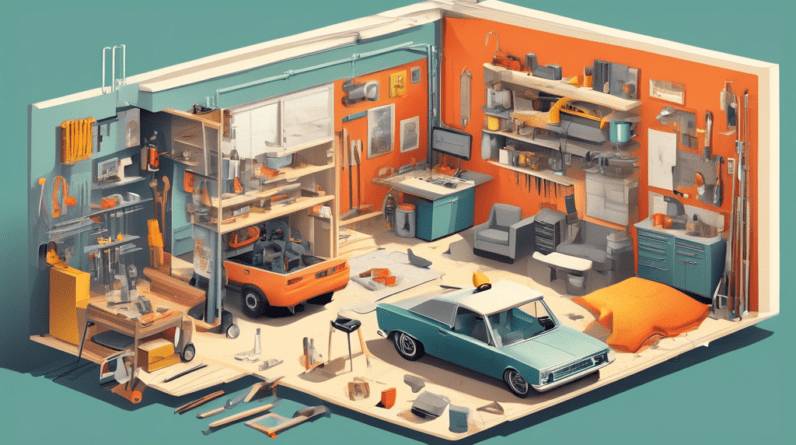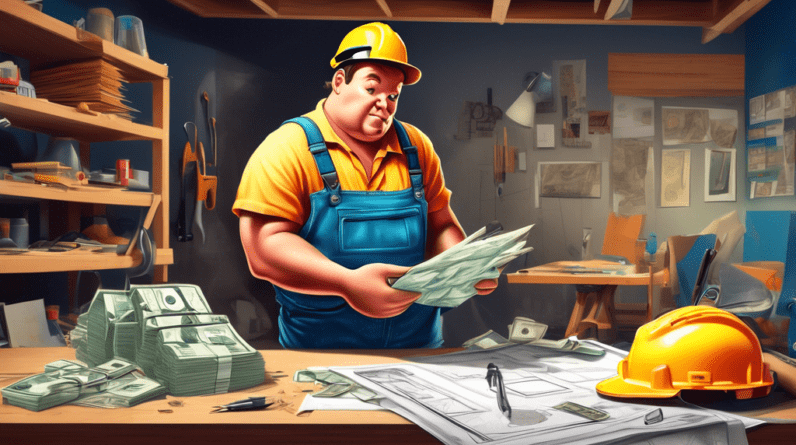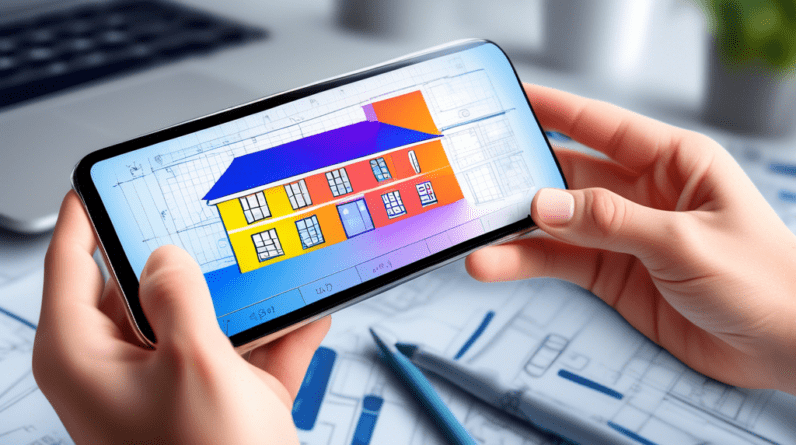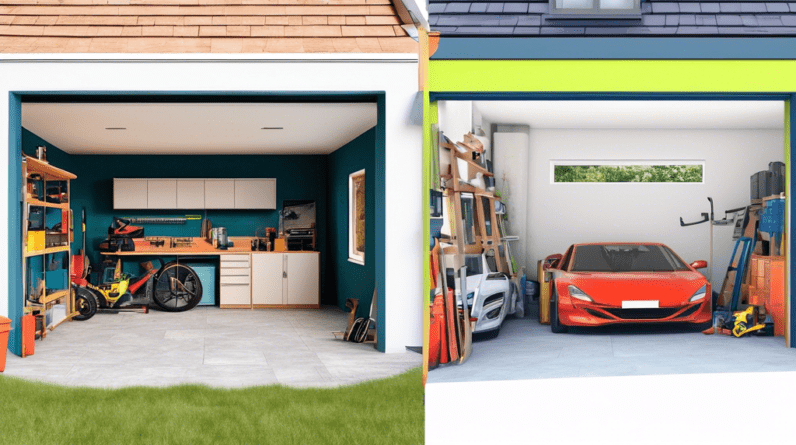
Dreaming of transforming your dusty, spider-web-laden garage into a stylish and functional living space? You’re not alone! Garage conversions are gaining immense popularity, offering a cost-effective way to add square footage and value to your home without the upheaval of moving.
However, before you start picking out paint colors and furniture, it’s crucial to understand the financial commitment involved. While generally more affordable than building an addition, garage conversions come with their own set of expenses. This comprehensive guide will delve into the nitty-gritty of garage conversion costs, helping you plan a realistic budget and avoid any unwelcome financial surprises.
Factors Influencing Your Garage Conversion Costs
No two garage conversions are identical in price. Several factors influence the overall expenditure, making it crucial to get a firm grasp of your project’s unique needs:
- Size Matters: A larger garage will naturally demand more materials and labor, driving up the cost. Converting a double garage into a spacious living area will be pricier than transforming a single garage into a cozy studio apartment.
- Location, Location, Location: Just as real estate prices vary by region, so do construction costs. Urban areas with higher labor and material costs tend to see higher garage conversion prices compared to rural locations.
- Existing Condition: A garage in good shape with a solid foundation and structure will require less preparation work, translating into lower costs. Conversely, a dilapidated garage needing significant repairs or foundation work will inflate the budget.
- Desired Functionality: Are you envisioning a simple guest room, a state-of-the-art home office, or a luxurious home theater? The intended use of your converted space significantly impacts the cost. Adding plumbing for a bathroom or kitchen will be a bigger investment than a basic conversion.
- Finishing Touches: The devil is in the details. High-end finishes like hardwood flooring, custom cabinetry, and designer lighting fixtures will quickly add up compared to budget-friendly alternatives.
A Breakdown of Common Garage Conversion Costs
While it’s impossible to give an exact price tag without assessing your specific project, let’s break down the typical expenses associated with garage conversions to provide a general idea:
1. Design and Permits (5% – 10% of Total Cost)
Before the hammers start swinging, you’ll need a solid plan. Hiring an architect or designer to draft plans and ensure compliance with building codes is a worthwhile investment:
- Architect/Designer Fees: $1,000 – $5,000+
- Permit Fees: $500 – $2,000+ (varies significantly by location)
2. Structural Changes and Foundation Work (10% – 20%)
Ensuring a safe and structurally sound conversion is paramount:
- Foundation Repair/Strengthening: $2,000 – $10,000+ (depending on the extent of work needed)
- Wall Framing/Modifications: $1,000 – $5,000+
- Garage Door Removal/Wall Construction: $500 – $2,000+
- Window and Door Installation: $1,000 – $5,000+ (depending on size, type, and quantity)
3. Plumbing and Electrical (15% – 25%)
This is where costs can escalate, especially if you’re adding a bathroom or kitchenette:
- New Electrical Wiring and Outlets: $2,000 – $5,000+
- Plumbing Rough-in and Fixtures: $1,500 – $10,000+ (bathroom additions significantly increase costs)
- HVAC Extension/Ductwork: $1,000 – $5,000+ (depending on existing system and square footage)
4. Insulation and Drywall (10% – 15%)
Proper insulation is crucial for comfort and energy efficiency:
- Insulation (walls, ceiling, floor): $1,000 – $3,000+
- Drywall Installation and Finishing: $2,000 – $5,000+
5. Flooring, Paint, and Finishes (15% – 25%)
This is where your personal style comes into play, and costs can range widely:
- Flooring (carpet, laminate, hardwood): $1,500 – $5,000+
- Interior Painting: $1,000 – $3,000+
- Trim, Molding, and Baseboards: $500 – $2,000+
- Lighting Fixtures: $500 – $2,000+
6. Contingencies (5% – 10%)
It’s always wise to factor in a contingency fund for unexpected expenses that may arise during the project, such as hidden problems or changes to the original plan.
DIY vs. Hiring Professionals: Weighing the Pros and Cons
One way to potentially reduce garage conversion costs is to tackle some aspects of the project yourself. However, this approach requires careful consideration:
DIY Pros:
- Cost Savings: Labor typically makes up a significant portion of renovation expenses, so doing it yourself can save money.
- Sense of Accomplishment: Taking on a hands-on role can be incredibly rewarding.
DIY Cons:
- Time Commitment: DIY projects often take longer than anticipated, especially if you lack experience.
- Risk of Errors: Mistakes can be costly to fix and may even jeopardize the structural integrity of your home.
- Specialized Skills Required: Some tasks, like electrical and plumbing, are best left to licensed professionals to ensure safety and code compliance.
Hiring Professionals:
- Expertise and Experience: Professionals bring specialized knowledge and experience to the table, ensuring quality workmanship and adherence to building codes.
- Time Savings: Hiring pros allows you to stay focused on your daily life while the project is completed efficiently.
- Warranties and Guarantees: Reputable contractors typically offer warranties on their work, providing peace of mind.
Ultimately, the decision to DIY or hire professionals depends on your budget, skills, available time, and comfort level with various aspects of construction.
Financing Your Garage Conversion
Once you have a realistic estimate of your project costs, it’s time to explore financing options:
- Home Equity Loans and Lines of Credit (HELOCs): Leverage the equity in your home to secure a loan or line of credit at a potentially lower interest rate compared to other financing options.
- Personal Loans: A viable option for smaller conversions if you need quick access to funds. However, interest rates can be higher than secured loans.
- Cash-Out Refinance: Replace your existing mortgage with a larger one, allowing you to access cash for your conversion. Consider interest rate differences and closing costs.
- Savings: If you’ve been diligently saving, funding the project with cash can help you avoid interest charges and debt.
Maximizing Your Return on Investment
While garage conversions can be a worthwhile investment, adding value and functionality to your home, there are strategies to maximize your ROI:
- Prioritize Quality Workmanship: Cutting corners on materials or labor may seem tempting initially, but it can lead to costly repairs and diminish the value of your conversion in the long run.
- Focus on Functionality: Carefully consider how you’ll use the space and prioritize features that add practical value, such as a bathroom for a guest suite or ample storage in a home office.
- Boost Curb Appeal: Don’t neglect the exterior! Update the facade of your garage to seamlessly blend with the rest of your home, enhancing curb appeal and perceived value.
- Consult a Real Estate Agent: Before embarking on a conversion, it’s wise to speak with a local real estate agent to get insights into features that are highly sought after in your area, maximizing your home’s resale value.
Conclusion
Embarking on a garage conversion can be an exciting journey, transforming an underutilized space into a valuable extension of your living area. By understanding the factors influencing costs, carefully planning your budget, and exploring financing options, you can turn your dream conversion into a rewarding reality, adding value, functionality, and personalized style to your home.






